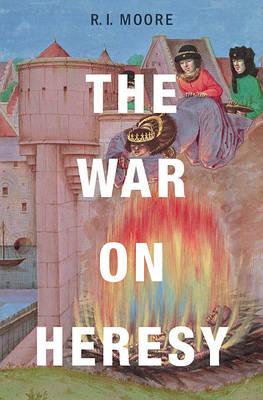Overview
Between 1000 and 1250, the Catholic Church confronted the threat of heresy with increasing force. Some of the most portentous events in medieval history - the Cathar crusade, the persecution and mass burnings of heretics, the papal inquisition established to identify and suppress beliefs that departed from the true religion - date from this period. Fear of heresy molded European society for the rest of the Middle Ages and beyond, and violent persecutions of the accused left an indelible mark. Yet, as R. I. Moore suggests, the version of these events that has come down to us may be more propaganda than historical reality. Popular accounts of heretical events, most notably the Cathar crusade, are derived from thirteenth-century inquisitors who saw organized heretical movements as a threat to society. Skeptical of the reliability of their reports, Moore reaches back to earlier contemporaneous sources, where he learns a startling truth: no coherent opposition to Catholicism, outside the Church itself, existed. The Cathars turn out to be a mythical construction, and religious difference does not explain the origins of battles against heretic practices and beliefs. A truer explanation lies in conflicts among elites - both secular and religious - who used the specter of heresy to extend their political and cultural authority and silence opposition. By focusing on the motives, anxieties, and interests of those who waged war on heresy, Moore's narrative reveals that early heretics may have died for their faith, but it was not because of their faith that they were put to death.
Full Product Details
Author: R. I. Moore
Publisher: Harvard University Press
Imprint: The Belknap Press
Dimensions:
Width: 15.50cm
, Height: 3.20cm
, Length: 23.50cm
Weight: 0.771kg
ISBN: 9780674065826
ISBN 10: 0674065824
Pages: 416
Publication Date: 15 May 2012
Audience:
Professional and scholarly
,
Professional & Vocational
Format: Hardback
Publisher's Status: Active
Availability: Available To Order

We have confirmation that this item is in stock with the supplier. It will be ordered in for you and dispatched immediately.
Reviews
We have not forgotten the Albigensian Crusade, nor its prequel in the heresy campaigns of the twelfth century, but in this fascinating study, the veteran medieval historian R. I. Moore argues with the zeal of a convert that we may have radically misunderstood them. And on that proposition, much in Western medieval history turns...The great virtue of this major recasting of Western history over three centuries is that it sounds right. It sums up more than a decade's worth of growing doubts among many medieval historians about the reality of Cathar dualism. It takes due note of the untidiness of historical developments, and the almost limitless capacity of human beings to believe and internalize the most risible nonsense if it suits them. Yet the rigor of Moore's arguments is a consoling reminder that humans can also be rational beings, capable of empathy with the long-dead, sympathetically comprehending why people have embraced nonsense, and listening carefully to faint voices through a hubbub of misleading background noise. Moreover, we can do so with the consciousness that such a task is a matter of morality, a pursuit of truth and justice, which is among the highest callings we can embrace. R. I. Moore's case is meticulously as well as boldly argued, though medieval historians (some of whom will not like his book one bit) would want more footnotes than a work aimed at the general reader provides. No doubt footnotes will sprout mightily in the debate provoked by this study; and after it all, we will have a renewed picture of medieval Europe. -- Diarmaid MacCulloch Times Literary Supplement 20120704
Author Information
R. I. Moore is Professor Emeritus of Medieval History at Newcastle University.



